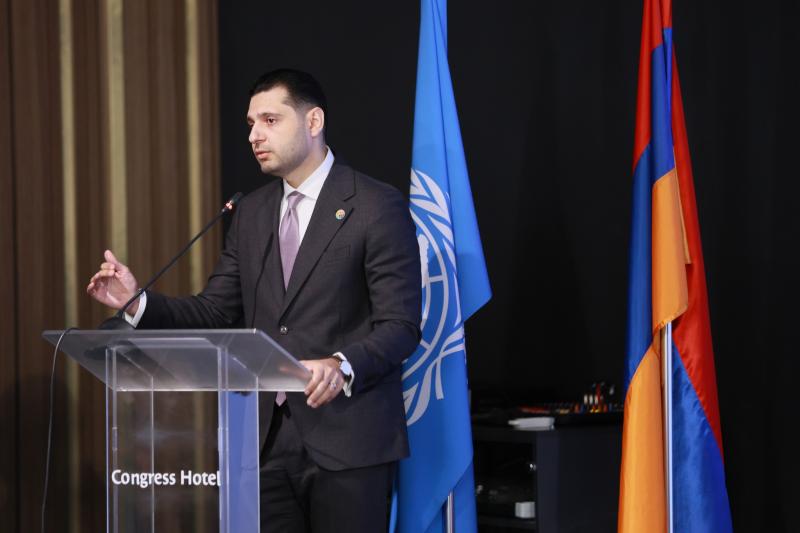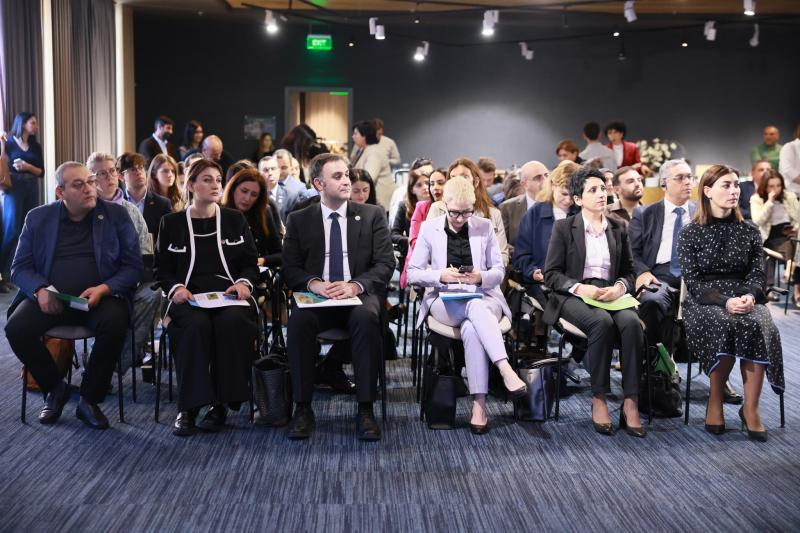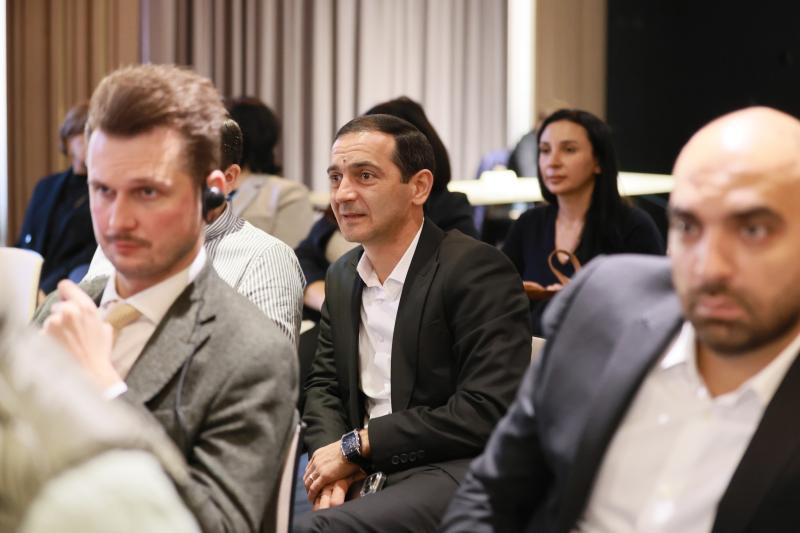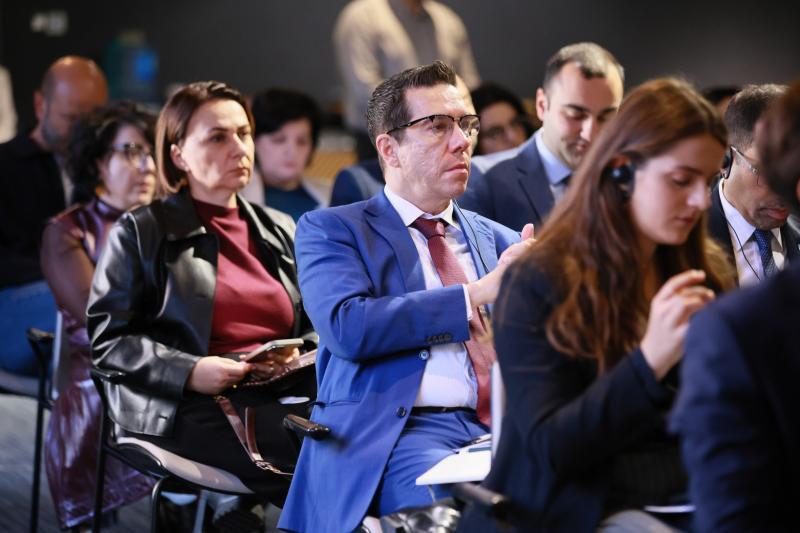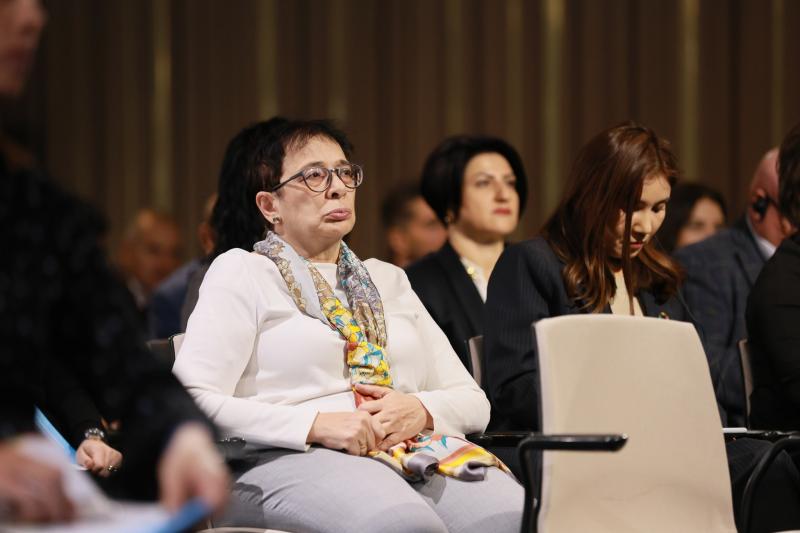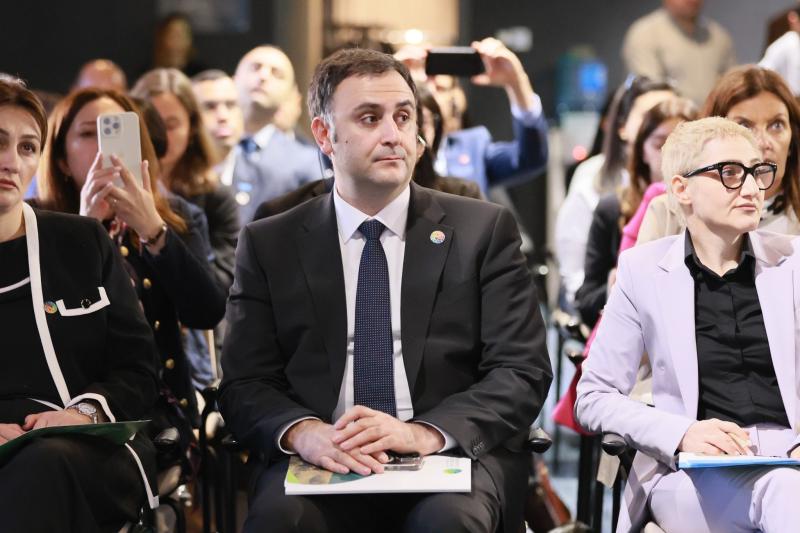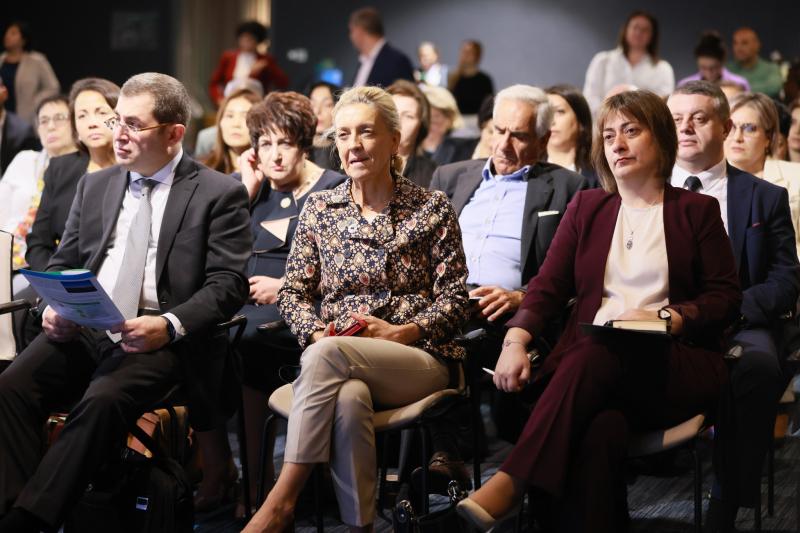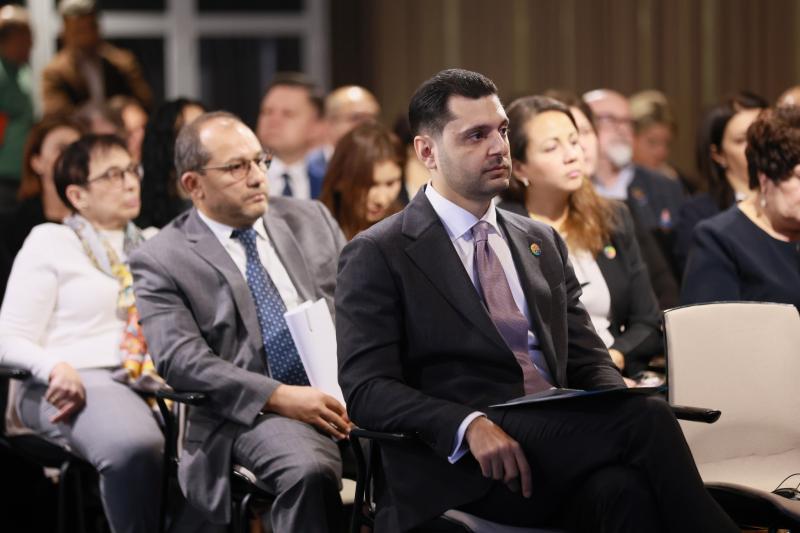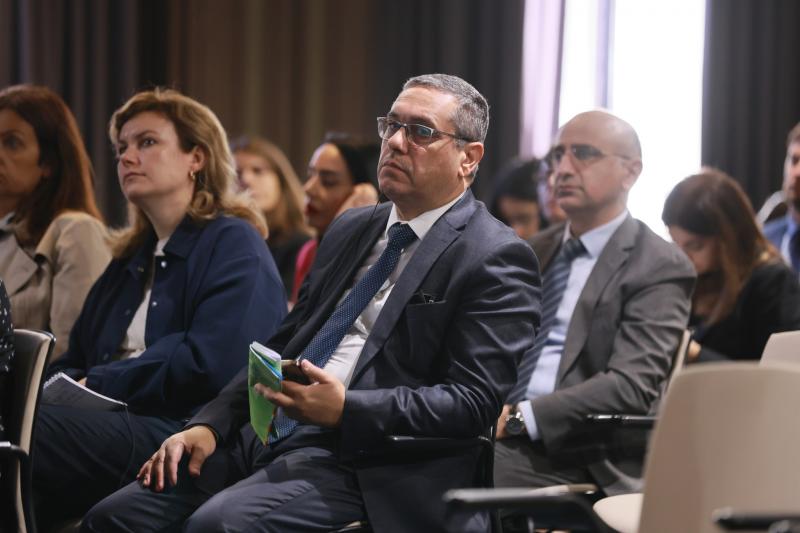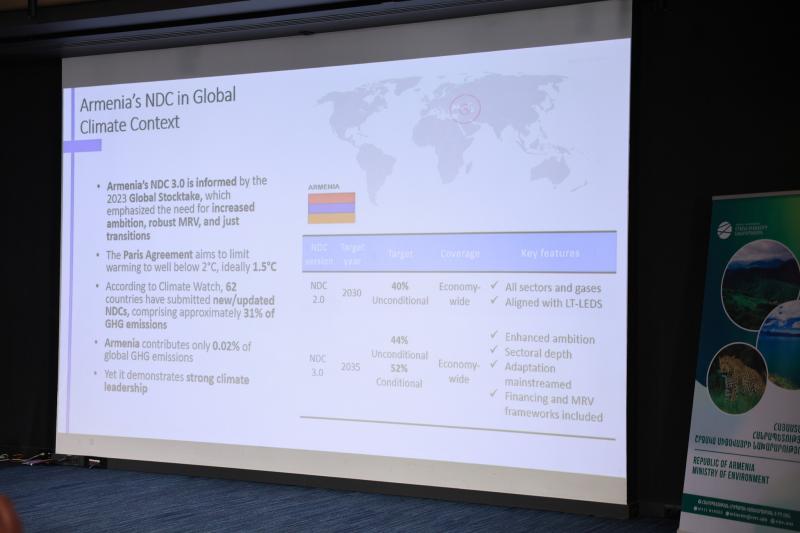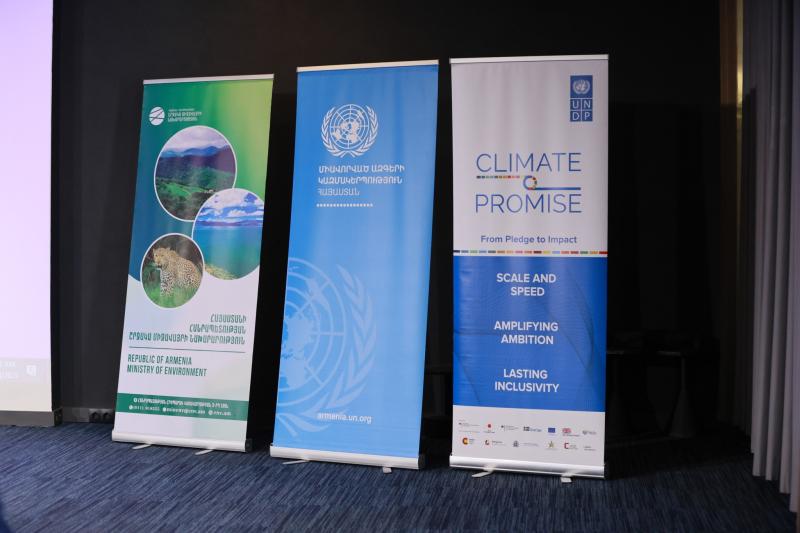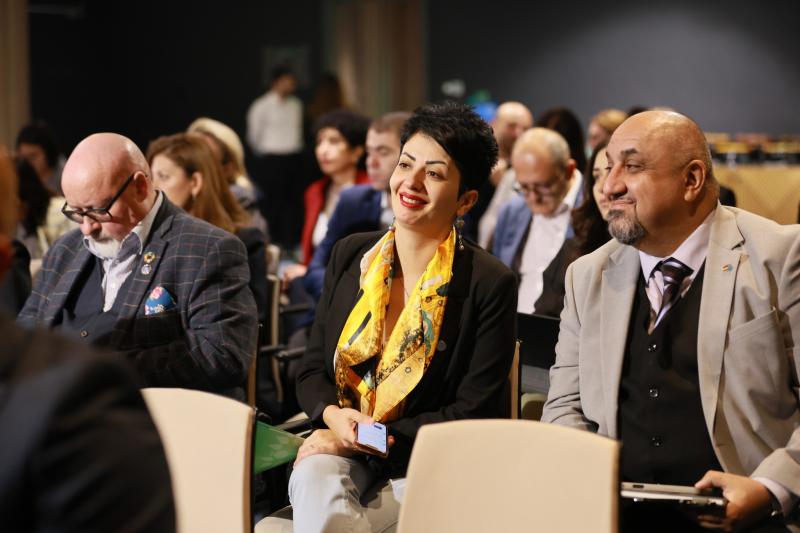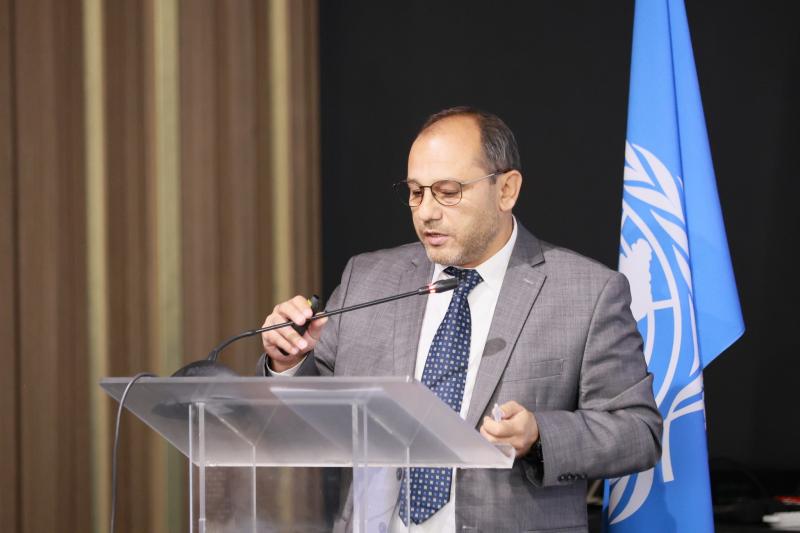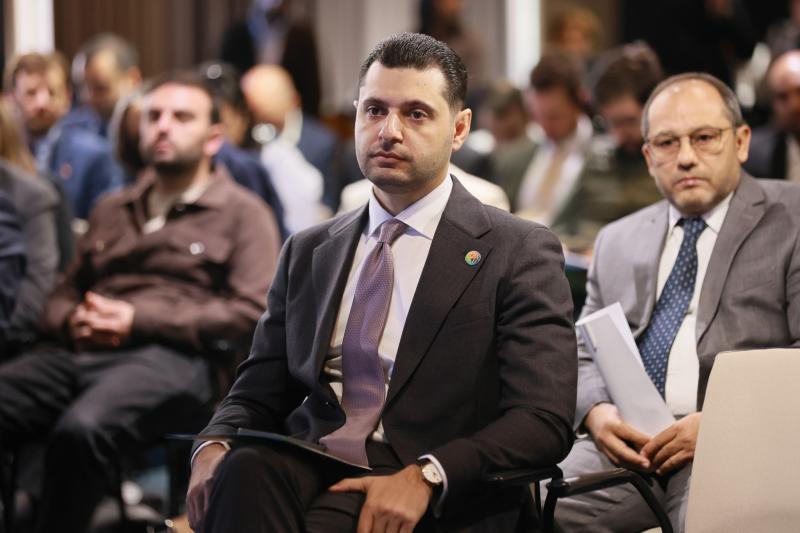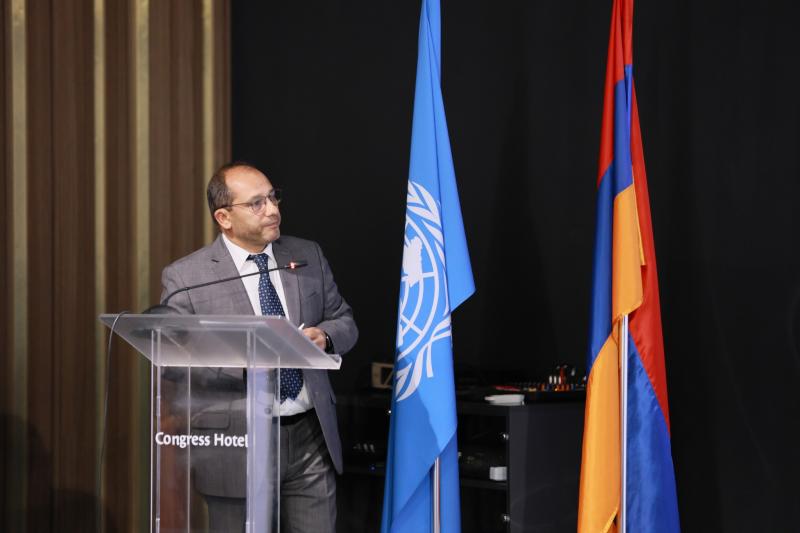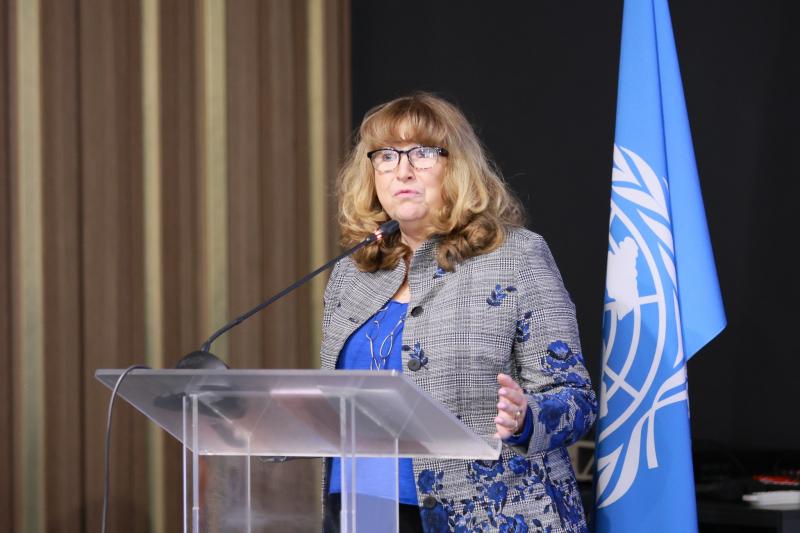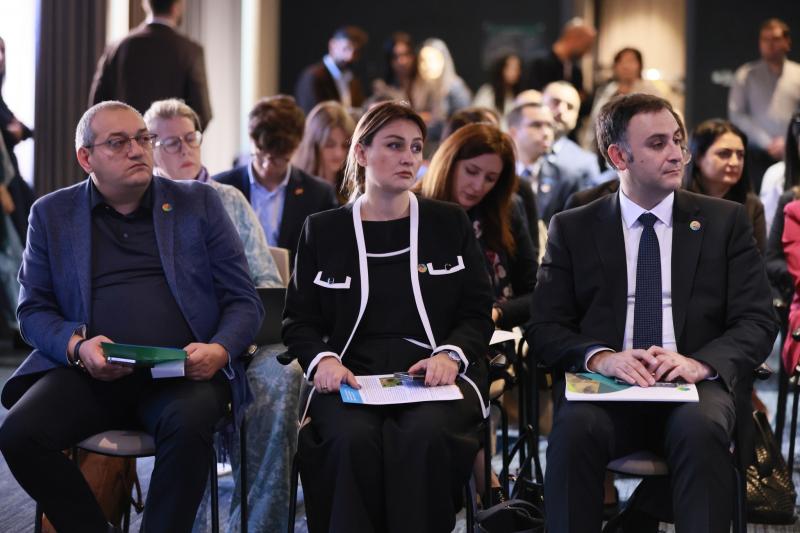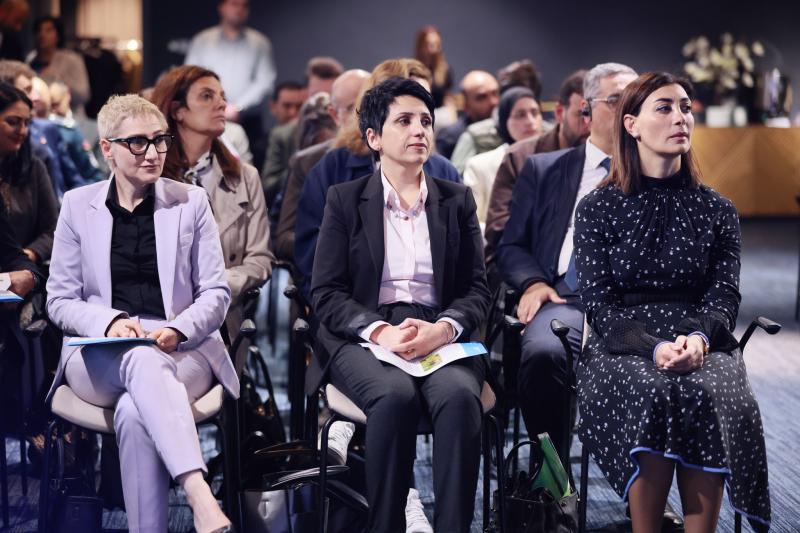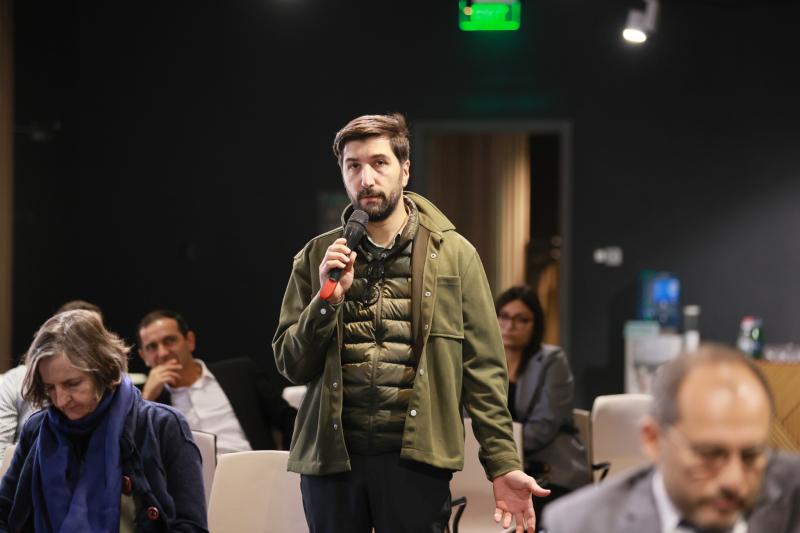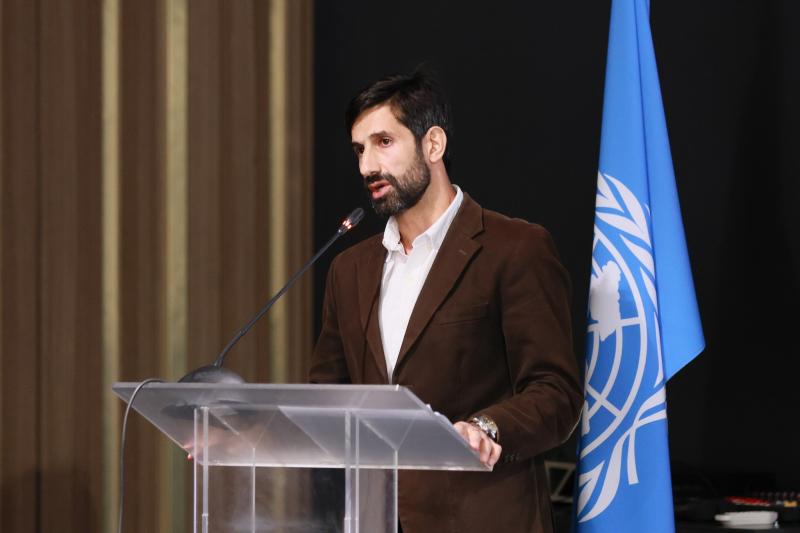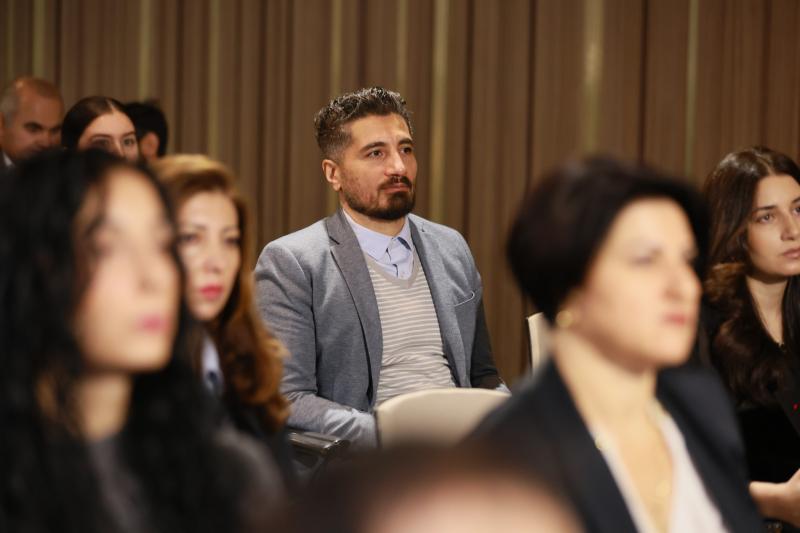Hambardzum Matevosyan, Minister of Environment of the RA, participated in the working meeting titled “Biodiversity Loss and Climate Change within the Framework of Coordination of National Strategies.”
Astrid Schomaker, Executive Secretary of the UN Convention on Biological Diversity; Françoise Jacob, UN Resident Coordinator; Natia Natsvlishvili, UNDP Resident Representative; as well as representatives of state institutions, international organizations, and civil society attended in the workshop.
In his opening remarks, the Minister noted that the meeting is of particular importance in terms of effectively integrating biodiversity conservation and climate change mitigation processes. He emphasized that the world is currently facing shared environmental challenges, among which biodiversity loss and climate change are closely interlinked, exerting profound impacts on ecosystems and socio-economic stability.
According to Minister Hambardzum Matevosyan, Armenia’s key priority is to develop a unified and synergistic approach to ensure that climate change mitigation, adaptation, and biodiversity conservation policies function in a complementary and mutually reinforcing manner. To this end, the Ministry of Environment of the Republic of Armenia has developed the National Biodiversity Strategy and Action Plan for the Republic of Armenia (NBSAP), which will serve as one of the main pillars of the country’s environmental policy.
The Minister noted that the new strategy defines 30 national targets to be achieved by 2030, aimed at restoring ecosystems, halting biodiversity loss, ensuring the sustainable management of natural areas, promoting nature-based solutions, and expanding environmental education. Armenia’s long-term vision is to become a biodiversity-rich, sustainable, and climate-resilient country by 2050.
The Minister noted that Armenia is consistently fulfilling its commitments under the UN Framework Convention on Climate Change and the Paris Agreement. The current Nationally Determined Contribution (NDC) aims to reduce greenhouse gas emissions by at least 40 percent by 2030 compared to 1990 levels. The development of NDC 3.0 (2026–2035) is currently underway and will be more ambitious and comprehensive, encompassing renewable energy, energy efficiency, climate-resilient infrastructure, adaptive agriculture, and integrated water resources management.
Minister Hambardzum Matevosyan also emphasized the importance of a participatory and transparent process, engaging state bodies, local communities, the scientific and private sectors, and civil society. He noted that this approach provides an opportunity to establish a strong and effective national environmental policy framework.
During the meeting, Armenia’s National Biodiversity Strategy and Action Plan and the Nationally Determined Contributions (NDC 3.0) for the period 2026–2035 were presented. Minister Hambardzum Matevosyan emphasized that joint and coordinated efforts will enable Armenia to become a regional leader, integrating nature conservation, economic development, and human well-being.


